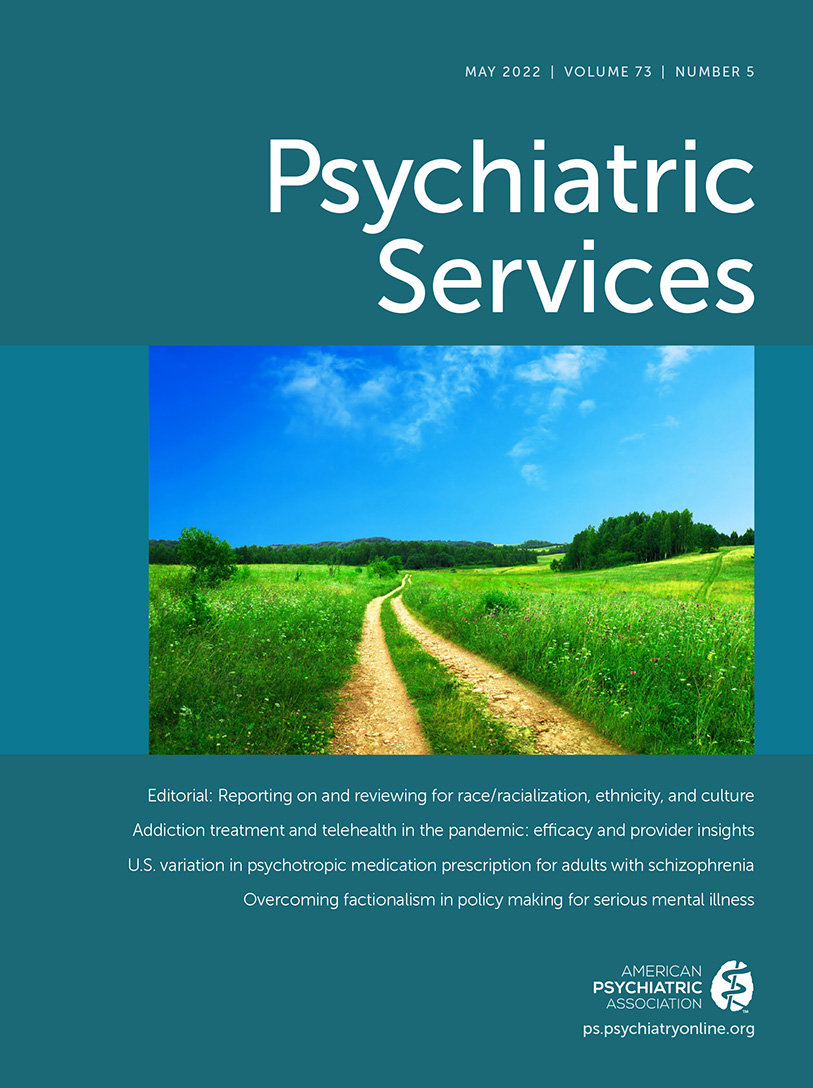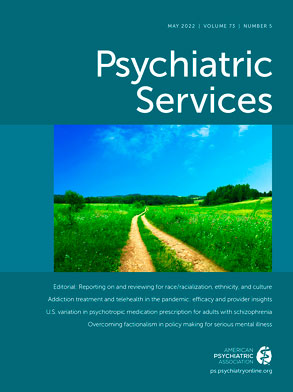Much has been written about the drug overdose epidemic. As noted in the accompanying article in this issue by McNeely and colleagues (
1), the number of recent drug overdose deaths has been horrific. The COVID-19–psychiatric disorders syndemic has led to more U.S. drug overdose deaths (>100,000 individuals) in the past year than ever before. For most deaths, use involves an admixture of heroin and fentanyl or fentanyl analogs; for a growing share, use involves a stimulant with unintentional use of fentanyl; and for others, it is a stimulant alone or in combination with other illicit drugs, alcohol, or prescription medications. Physicians have highly effective, life-saving medications to manage opioid use disorder, namely, methadone, buprenorphine, and extended-release injection naltrexone, but, tragically, most physicians are not prescribing them, and most people with opioid use disorder are not receiving them. Methadone is restricted to specially licensed and highly regulated U.S. clinics despite demonstrated utility of primary care–based methadone administration in Canada and other nations. Buprenorphine now has few regulatory hurdles and should be more widely available across U.S. health systems and services.
We agree with McNeely and colleagues that training of the physician, nurse practitioner, and physician assistant workforce in the treatment of opioid and other substance use disorders is critical. Further, health system administrators must recognize that didactic training is just a start. As has been shown repeatedly, physicians are most likely to adopt new clinical practices when they have clinical experiences guided by supervision. This experience needs to start in medical school and residency training, where trainees can evaluate and treat patients with substance use disorders under expert supervision, just as for other medical disorders. As McNeely et al. point out, physicians can access training and technical assistance via the Provider Clinical Support System, Opioid Response Network, and Project ECHO as well as through the professional organizations (e.g., American Psychiatric Association and American Academy of Addiction Psychiatry). More incentives, perhaps including more generous reimbursement, could encourage physicians to participate. This strategy applies not only to opioid use disorder but also to alcohol and nicotine use disorders, which also are associated with enormous morbidity and mortality. Effective medications are available to treat alcohol and nicotine use disorders but are also vastly underutilized.
So, what are the elephants in the room? Stigma is clearly one. The field of addiction is haunted by the moral model—that substance use disorder is a moral failing of bad people (“addicts”). This model contributes to views among health care providers that patients with these disorders are not in their wheelhouse. Yes, people with addictions sometimes behave badly or are difficult to treat, but the same can be said of other health problems that have emerged from stigma and that are now viewed as within the purview of treatment. Similarly, addiction needs to be embraced by clinicians and health systems as a medical problem subject to rational and humane treatment. Managing difficult diagnoses and behaviors is just part of the challenge, and behavioral treatment strategies are an important part of a clinician’s skill set for managing addiction. An emphasis on medication treatments for opioid and other substance use disorders is appropriate, with medication being an essential foundation for treatment. However, we must also train physicians and other clinicians in evidence-based behavioral treatments such as motivational interviewing and medical management. These interventions are well suited to general medical or mental health practice and include important skills for managing substance use disorders.
Another important complexity is that many patients with opioid and other substance use disorders do not seek treatment, even when it is available, or don’t stick with it. Among patients who initiate medication treatment for opioid use disorder, the proportion retained for 6 months or more (the minimum adequate exposure) is soberingly low. Another elephant in the room is that “We must build it”—we must build universal availability of rational medical treatment for opioid and other substance use disorders. But only some will come. Some people may avoid treatment because of stigma, but some may choose to continue taking drugs. A rational, humane response is needed for these individuals. More investigation is needed to understand and reduce treatment dropout. And more research is needed to tailor interventions to engage people with opioid and other substance use disorders into treatment.

